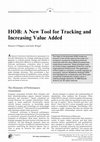Papers by Eleanor O'Higgins
Journal of the Irish Dental Association, 2014
What sets a profession apart from other groupings in society? A profession is identified by four ... more What sets a profession apart from other groupings in society? A profession is identified by four interrelated hallmarks. A common body of knowledge which characterises the unique domain of expertise of the profession: this body of knowledge has to be updated continually through ongoing professional education.
My chosen inspiring work of art is an especially amazing iceberg I saw on an expedition in the An... more My chosen inspiring work of art is an especially amazing iceberg I saw on an expedition in the Antarctic. The artist is Nature itself, and although I will submit a photograph of one iceberg, there were countless others I could submit. The Antarctic is a unique continent, in the sense of minimum interference from the Anthropocene. So, it is the closest we come to the creation of the natural world, and thereby, a sense of spirituality. This essay will explore this last frontier, as a ‘no-man’s land that belongs to everyone’, through its history, geography, and ecology, as a protected territory, a natural reserve, devoted to peace and science as an aspiration.

This chapter discusses the special case of extractive industries in relation to susceptibility to... more This chapter discusses the special case of extractive industries in relation to susceptibility to corruption, especially in states with weak institutional and governance structures. The systemic nature of this corruption is shown in a vicious cycle of extractive resource dependency and corruption which reinforce each other. The chapter then concentrates on the supply side of corruption, and the role of the private sector with domestic and foreign natural resources companies feeding into systemic corruption. Corruption is underpinned by a high demand, high prices for extractive resources scenario, and mitigated by a low demand, low prices scenario. Transparency oriented, anticorruption measures may not be effective in their own right, but a low demand, low prices scenario could provide an opening for such measures to take root, with accompanying benefits to the citizens of resource rich states and their environment. This suggests taking a contingency approach to dealing with corruption.

This book presents and analyses exemplary cases of progressive business, understood as ecological... more This book presents and analyses exemplary cases of progressive business, understood as ecologically sustainable, future-respecting and pro-social enterprise. The authors present a number of companies following progressive business practices from a range of industries including ethical and sustainable banking, artisan coffee production and distribution, pharmaceutical products, clean technology, governance in retailing, responsible hospitality and consumer goods. With case studies from around Europe such as Tridos Bank in The Netherlands, Beres Co. in Hungary, Novo Nordisk in Denmark, Lumituuli in Finland, John Lewis in the UK and Illy Cafe from Italy, these progressive companies have global reach and an international impact. The collected cases aim to show the best to be expected from business in the 21st century in a structured accessible way, suitable for any readers interested in innovative ways of creating forward-looking sustainable business.
Open Access publications, 1998
Palgrave Studies in Sustainable Business In Association with Future Earth

Palgrave Studies in Sustainable Business In Association with Future Earth
The chapter analyses John Lewis Partnership, an employee owned UK company which operates 42 John ... more The chapter analyses John Lewis Partnership, an employee owned UK company which operates 42 John Lewis department stores across the UK, 328 Waitrose supermarkets, an online and catalogue business, a production unit, and a farm. The company is owned by a trust on behalf of all its 90,000 permanent staff, known as “Partners,” who have a say in the running of the business and receive a share of annual profits, which is usually a significant addition to their salary. Its Constitution states that “the happiness of its members” is the Partnership’s ultimate purpose, recognizing that such happiness depends on having a satisfying job in a successful business. It establishes a system of rights and responsibilities, which places on all Partners the obligation to work for the improvement of the business in the knowledge that they share the rewards of success. The Constitution defines mechanisms to provide for the management of the Partnership, with checks and balances to ensure accountability, transparency, and integrity. It established the representation of the co-owners on the Partnership Board through the election of Partners as Elected Directors.

Palgrave Studies in Sustainable Business In Association with Future Earth
This introductory chapter signposts the rationale, framework, and case study contents of the book... more This introductory chapter signposts the rationale, framework, and case study contents of the book. First, we offer an overview of the need for new more progressive business models than the mainstream which exists at present, identifying the current challenges facing business in Europe and beyond in its international ramifications. To remedy these challenges, we present our alternative vision of progressive business functioning, whose basic criteria comprise ecological sustainability, respect for future generations, and pro-socialness. Then, synopses of our case examples follow. Business models are basically stories about how enterprises work, so case studies lend themselves to telling a story. The case study is a structured narrative that depicts the past, present and potential future of the enterprise, how it came to develop and implement its business model and how it works. Since no business is perfect in all its dimensions, issues and challenges with respect to progressive business principles fulfillment and enterprise sustainability faced by the organization and its business model will be presented in the case studies. The case chapters conclude with generalizable insights offered by the case. These insights provide a basis for pedagogical analyses which can be applied to the material and used by instructors with students as appropriate.

Palgrave Studies in Sustainable Business In Association with Future Earth
This concluding chapter stresses that the future of business highly depends on its ability to ren... more This concluding chapter stresses that the future of business highly depends on its ability to renew its business models. The key problem is the nature, form, and scale of business operations. The business models of today’s mainstream business do not fit in the reality of the biosphere. Business models vary but almost none of them are consistent with the flourishing life on Earth (including human, nonhuman, and future life). To achieve meaningful change in the humanity-nature nexus business organizations should reinvent the ways they function. How can business become ecologically conscious agent which operates within limits, that is, uses only its “fair earth share” and contributes to the richness of life on Earth? Our progressive business cases and other examples of innovative business models are just the first steps in the difficult trajectory of transforming business to fit in the reality of the Anthropocene. The much disturbed Earth-Human system requires organizations whose primary objectives and criteria of success include the “Commonwealth of Life.”If mainstream business will not change its underlying “market fundamentalism,” there will be little chance for humanity to survive in the Anthropocene. The hope is that progressive business models can make the old-fashioned ways of doing business obsolete.

Global Boards, 2009
From the early 1990s, there has been a growing awareness of the relevance of positive leadership ... more From the early 1990s, there has been a growing awareness of the relevance of positive leadership in corporate governance for the sustainability of companies and the business system. This awareness stems from manifest failures in corporate governance, which gave rise to scandals worldwide, and arguably, to the global banking crisis of 2008. An early scandal, which was a factor initiating corporate governance reform in the UK, was the 1991 Maxwell downfall, when it was revealed that Robert Maxwell, Chairman and CEO of Maxwell Communications Corporation, had caused a GBP 441 million-sized hole in the company pension fund to cover hidden personal debts of GBP 4 billion. Subsequent analysis highlighted a number of corporate governance deficiencies and lack of accountability and controls because of the concentration of power that had facilitated Maxwell’s fraudulent activities.

Part 1 Introduction: the role of women in management international human resource management Euro... more Part 1 Introduction: the role of women in management international human resource management European human resource management rationale for the study research focus of the study the interview pool the sample. Part 2 Barriers to women in management: cultural, legislative, educational, work-family, corporate, and attitudinal barriers mentoring, tokenism and networking sexual harassment career development additional barriers for female international managers. Part 3 Working at senior management level - empirical evidence: breaking the glass ceiling mentors tokenism and lack of female role models networking male/female/individual style of management career planning. Part 4 Challenges for female international managers - further evidence: the trailing spouse international career versus relationship and childbearing conflicts characteristics of an international manager the international transfer cycle do female managers want international careers? the impact of gender on female managers' international careers. Part 5 A model and propositions for the female international managerial career move: a model of the senior female international career move recommendations for practice agenda for further research.
Business and the Greater Good, 2015
Management and Organizational Studies, 2014
The purpose of this paper is to examine the interrelated influences of managers' emotional intell... more The purpose of this paper is to examine the interrelated influences of managers' emotional intelligence, leadership styles and team outcomes of: team performance, team communication, team cohesion and conflict management. In particular, this study explored the potential mediating effects of managers' transformational leadership style on the relationships between managers' emotional intelligence and those team outcomes. The results showed that managers' transformational leadership style fully mediates the relationship between managers' emotional intelligence and team performance, team communication and conflict management. However, no mediating effect of managers' transformational leadership style is found on the relationship between managers' emotional intelligence and team cohesion.

Business Ethics Quarterly, 2006
The systemic role of corruption and its link to low human development is explored. The extractive... more The systemic role of corruption and its link to low human development is explored. The extractive resource industry is presented as an arena where conditions for corruption—monopoly and discretion without accountability—are especially intense. Corruption is maintained by a self-reinforcing cycle. Multiple stakeholders are involved in the maintenance of and/or opposition to the cycle: investing corporations, host country regimes and officials, inter-governmental bodies like the OECD, industry associations, non-governmental organization (NGO) watchdogs like Transparency International, and international agencies facilitating global investment like the World Bank. Complementarity of interests between the demand and supply sides provides strong incentives for entrenched players to maintain corruptive relationships, to protect past gains and sustain current ones. Compulsory international regulation, maximum transparency, effective detection, and enforcement are recommended to enhance accountability, thereby reversing the cycle. It is also necessary to create a corporate culture built on integrity, if regulation itself is to succeed.
Corporate Governance, 2003
... Tel: +353 1 7168968. Fax: +353 1 7168954. E-mail: eleanor.ohiggins@ucd.ie. Abstract. ... Thei... more ... Tel: +353 1 7168968. Fax: +353 1 7168954. E-mail: eleanor.ohiggins@ucd.ie. Abstract. ... Their efforts were endorsed by the presence of UN Secretary-General Kofi Annan at a conference convened by them in Toronto in May 2002. ...

Long Range Planning, 1999
A PRIMARY PURPOSE OF PERFORMANCE assessment is to provide information for strategic planning and ... more A PRIMARY PURPOSE OF PERFORMANCE assessment is to provide information for strategic planning and management, to evaluate present strategy and whether it might be altered for offensive or defensive purposes. Outcome performance evaluation alone is insufficient. An understanding of the strategic dynamics underlying outcome performance is vital, entailing the constructive use of feedback from performance to make strategic decisions. This necessitates a fundamental appreciation of capabilities, assets, and processes, consistent with the resource-based view of the firm, 1 whereby internal characteristics of the enterprise are bases of success. The Elements of Performance Assessment Company assessment includes three elements and their interrelationships-inputs, internal business processes, and outcomes. 2,3 Inputs considered are usually financial, for example, shareholders' funds, capital, or assets employed. Occasionally, inputs include human resources, as knowledge assets inherent in people and technology are increasingly regarded as critical. 4-6 Outcomes focus on profitability and sometimes market share measures. 7 'Technical' criticisms of financial performance measures range from manipulation of accounting data to contentious valuation of goodwill and brands, and treatment of off-balance sheet items. However, for strategic managers the most serious criticisms are not 'technical', but that financial measures alone are retrospective and give insufficient information about processes underlying the financial figures, that is, what is going on between the inputs and the outcomes.











Uploads
Papers by Eleanor O'Higgins